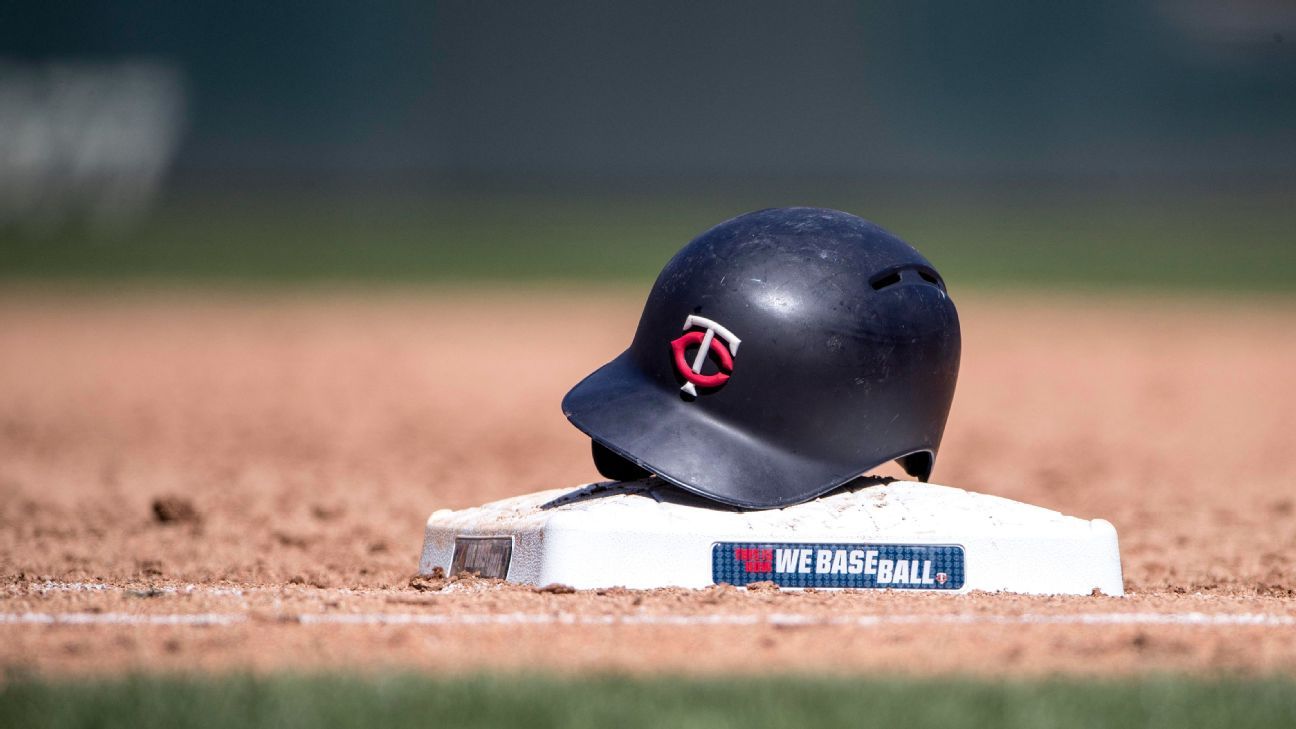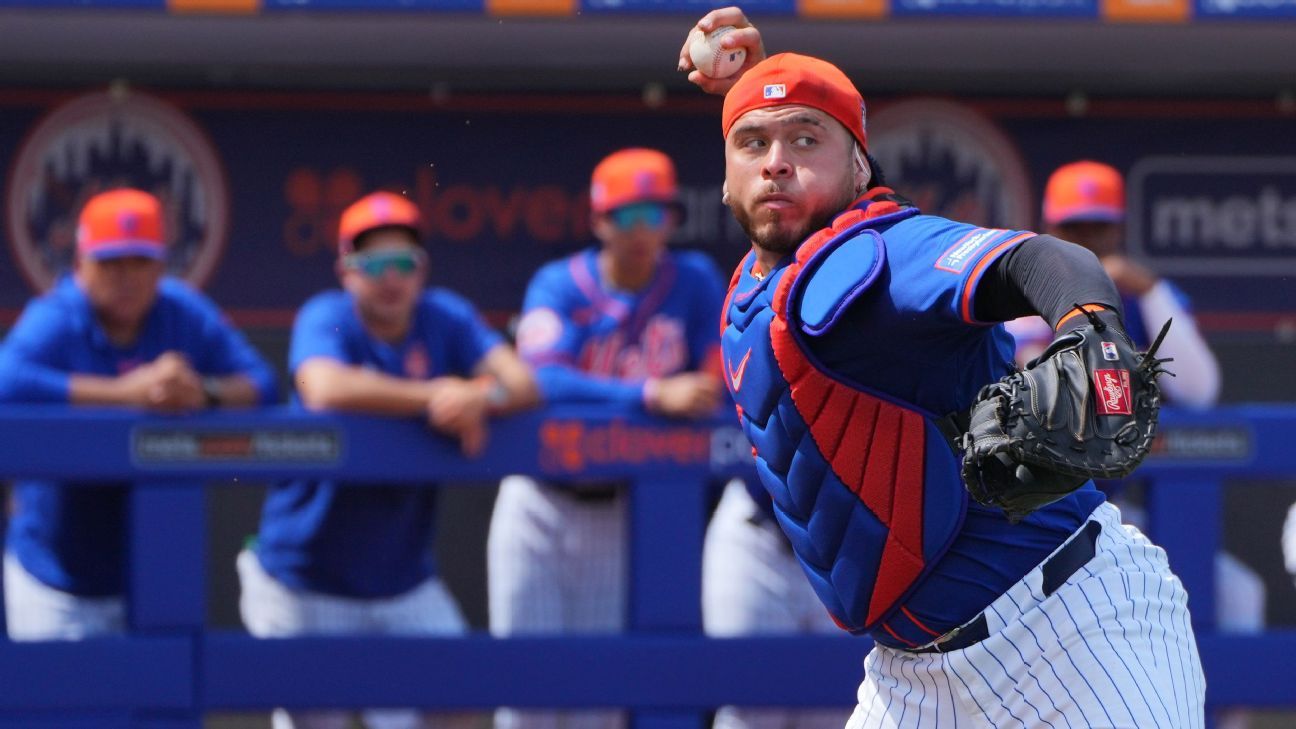
During a Minnesota Twins front-office diversity roundtable on Tuesday, general manager Thad Levine said front-office hiring practices in Major League Baseball and his own organization are "flawed" following the racial reckoning taking place in industries across America in the wake of the killing of George Floyd, which happened in the team's city of Minneapolis.
"We've become too reliant on the fact that there are so many candidates that desire to work in baseball. Unintentionally, we've become complacent," Levine said while introducing the panel on a video conference call. "Our applicant pool that's flooded our office has been filled with a lot of talent. It's been in large regard homogeneous. We believe that diverse thoughts, life experiences and beliefs inspire a welcoming, inclusive environment and enhances the development of our employees and fuel the growth of the Minnesota Twins organization. All of these words are substantive, we need our actions to be transformational."
The panel is the first in a series the team plans on hosting. The next is scheduled for Aug. 13 with the top women leaders in the Twins' organization. The panel included four Black members of the Minnesota front office: director of amateur scouting Sean Johnson, senior adviser in scouting Deron Johnson, advance scouting analyst Josh Ruffin and pro scouting fellow Navery Moore. The panel was moderated by former Minnesota Timberwolves assistant general manager Noah Croom.
During the one-hour conference, which received more than 400 advance signups, panelists discussed the experience of getting an entry-level job in baseball and the difficulty in finding mentors. Ruffin, a former pitcher at Duke, articulated the cultural pressures of being a young, Black member of a front office.
"Coming into baseball, I kinda thought that I needed to come in, survey the land, see who's around me and then make sure that I kinda mesh in with that culture just so I'm not ostracizing myself," Ruffin said.
Moore joined the Twins' front office in January. He pitched at Vanderbilt and spent six seasons in the minors and independent baseball from 2011 to 2016, and said having Black colleagues in the Twins' front office eased his cultural transition into the organization.
"The landscapes are different from club to club, but as soon as I joined the Twins, I was able to meet Deron and Sean very early on after joining and then Josh also in the office since we're both in there every day," Moore said. "It did provide a very comfortable environment for me because I automatically knew that there were people I could relate to who've been in baseball for a long time and have likely gone through similar experiences as me."
Deron Johnson said the rising financial costs of travel baseball and showcase circuits are creating a financial barrier for Black children in America to access baseball, adding that MLB needs to do a better job of marketing its Black players. Since the killing of Floyd, Johnson believes more Black voices are being heard in important conversations around baseball.
"I think our voices are being heard now," Johnson said. "Talking to some of my buddies in different organizations and I'm proud of our organization because we're one of the few that is doing something about diversity and inclusion. We've had several Zoom calls. Sean is on a committee that's gonna be interviewing for a hiring diversity committee. Industrywide? This is a time where people can get into the game or get their names out there. Unfortunately with the pandemic, I don't know about the hiring situation in most organizations."
Sean Johnson said that many Division I baseball scholarships are not always fully funded, compared to basketball and football, making the decision easier to drop baseball based on finances. Additionally, he noted that the sport needs to do a better job of being exciting while continuing to evolve and change.
"Keeping people interested in the sport at a young level, you see the NBA and you see that first-hand how the NBA has changed the way it's played and people have a favorite player and everyone likes all of the teams and all of the teams are competitive," Johnson said. "They've done a great job of changing and evolving with the culture and the times."
Moore spoke about his experience coming up through the minor leagues as a Black pitcher, often the only one on his team. Ruffin said he had a similar experience as a Division I pitcher, adding that he thinks Black players are boxed in by many coaches.
"You don't see any Black catchers. I think the pocketing or boxing in of Black athletes when they decide to come into baseball, it's one where you are super athletic or super fast and we're going to go stick you in the outfield where you run down and catch everything," Ruffin said. "There's sections of baseball that aren't even open to everybody when it comes to some of these amateur coaches you have. In basketball, you see it today and you can be 7-feet tall and as long as you can dribble, we'll let you go outside and shoot a little bit. It's one where you're fast? You're rangy? Go to center field, that's where you're at and that's what you got."
As the panel wrapped up, Levine thanked the four men for sharing their experiences publicly. He touted the Twins' mentor program, where the team hopes to connect with those interested in pursuing a career in baseball and receiving guidance on class choices and career aspirations.
"The first step in this is awareness and so few people have a feel for how you get into a front office or scouting or player development," Levine said. "If we can get a few people from this who embrace the mentor program and understand the opportunities a little bit better, maybe we are finding the next GM, assistant GM, scouting director, farm director, on-field coach that we otherwise would not have known that these jobs are out there for them and furthermore that you can have bona fide mentors such as you gentlemen and other people we have in organization, people of color who can give them real clear guidance and be a shining light for them as they go through their careers. We all need to stay committed to that."















 Phone: (800) 737. 6040
Phone: (800) 737. 6040 Fax: (800) 825 5558
Fax: (800) 825 5558 Website:
Website:  Email:
Email: 






